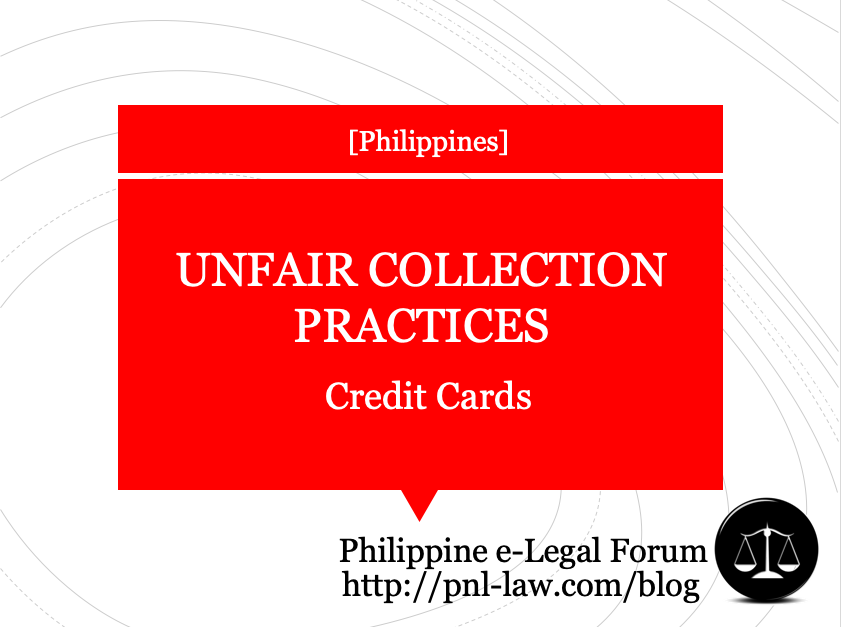There are a number of good reasons in favor of having and using a credit card. Still, we all know the possible adverse results in the unchecked use of “plastics” or credit cards, such as this one: “THERE’S a credit-card horror story that’s become some sort of an urban legend: A television personality, after losing his job in a top network, resorts to using his plastic money. By the time he finds employment in the rival network, he has wracked up P58,000 in credit card bills. But he figures he’s not yet ready to pay in full, so he pays just the minimum amount due. Yet after five years, he is shocked to realize that his credit card debt had ballooned more than 10 times to P700,000.”

Perhaps you’ve heard, or, most probably, experienced certain “innovative” strategies used by credit card companies and their collection agencies in “persuading” you to pay (they are, of course, entitled to payment). With the rising complaints against these strategies, the Bangko Sentral ng Pilipinas (BSP) issued a set of rules and regulations governing the credit card operations of banks and affiliate credit card companies.
As a rule, banks, subsidiary/affiliate credit card companies, collection agencies, counsels and other agents may resort to all reasonable and legally permissible means to collect amounts due them under the credit card agreement. However, in the exercise of their rights and performance of duties, they must observe good faith and reasonable conduct and refrain from engaging in unscrupulous or untoward acts. Without limiting the general application of the foregoing, the following are considered unfair collection practices
- a) the use or threat of violence or other criminal means to harm the physical person, reputation, or property of any person.
- b) the use of obscenities, insults, or profane language which amount to a criminal act or offense under applicable laws.
- c) disclosure of the names of credit cardholders who allegedly refuse to pay debts, with certain exceptions.
- d) threat to take any action that cannot legally be taken.
- e) communicating or threat to communicate to any person credit information which is known to be false, including failure to communicate that a debt is being disputed.
- f) any false representation or deceptive means to collect or attempt to collect any debt or to obtain information concerning a cardholder.
- g) making contact at unreasonable/inconvenient times or hours which shall be defined as contact before 6:00 a.m. or after 10:00 p.m., unless the account is past due for more than sixty (60) days or the cardholder has given express permission or said times are the only reasonable or convenient opportunities for contact.
As a rule, banks, subsidiary/affiliate credit card companies, collection agencies, counsels and other agents may resort to all reasonable and legally permissible means to collect amounts due them under the credit card agreement. However, in the exercise of their rights and performance of duties, they must observe good faith and reasonable conduct and refrain from engaging in unscrupulous or untoward acts, including those enumerated above.
- Twin-Notice Rule and Procedural Requirements in Employment Termination Proceedings - June 3, 2020
- When Travel Pass is Needed for Interzonal Travel during Community Quarantine - June 1, 2020
- Can Companies Compel Employees to Work during the General Community Quarantine (GCQ) and Impose Disciplinary Sanctions - May 29, 2020

WHAT HAPPEN NOW??